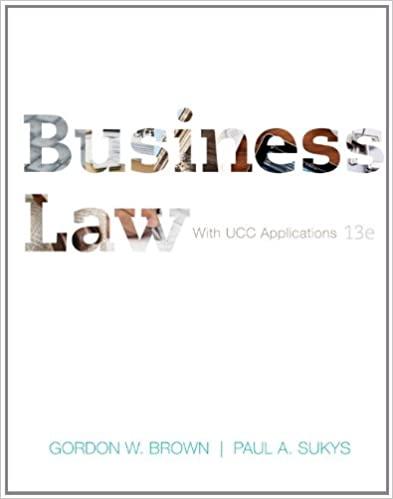Bethany Golemen was discharged from her job as an advertising executive at Farnsworth, Yardley, and Brook. Her
Question:
Bethany Golemen was discharged from her job as an advertising executive at Farnsworth, Yardley, and Brook. Her credit cards were maxed out, her savings account depleted, and her rent was due. On the bright side, James Farnsworth, the senior partner in the advertising firm, had given Goleman a sizable severance check as she left the office on her last day. Goleman was feeling lucky until she tried to retrieve her car from the service station where Tommy Henderson had just finished fixing the brakes on her Saturn. When Goleman tried to pay by credit card her card was rejected. Henderson refused to allow her to take her car until she gave him some type of payment. To satisfy Henderson she wrote him a check for the new brakes, even though she knew that the account was empty. She fully intended to place the severance check into the account the next morning so that the check would not bounce. Unfortunately, when she arrived at her apartment, she found that the landlord had changed the locks because her rent was six months overdue. In order to get into her apartment, she signed the severance check over to the landlord. As a result she never deposited any money in her checking account and her check to Henderson bounced. Was it ethical for Goleman to write Henderson the check knowing there was no money in the account? Remember that, at the time she wrote the original check out to Henderson, she fully intended to place the severance check in the account the next day. From an ethical perspective, does her intent to deposit funds in her checking account tomorrow permit her to write the bad check today? Why or why not?
Step by Step Answer:

Business Law With UCC Applications
ISBN: 9780073524955
13th Edition
Authors: Gordon Brown, Paul Sukys





